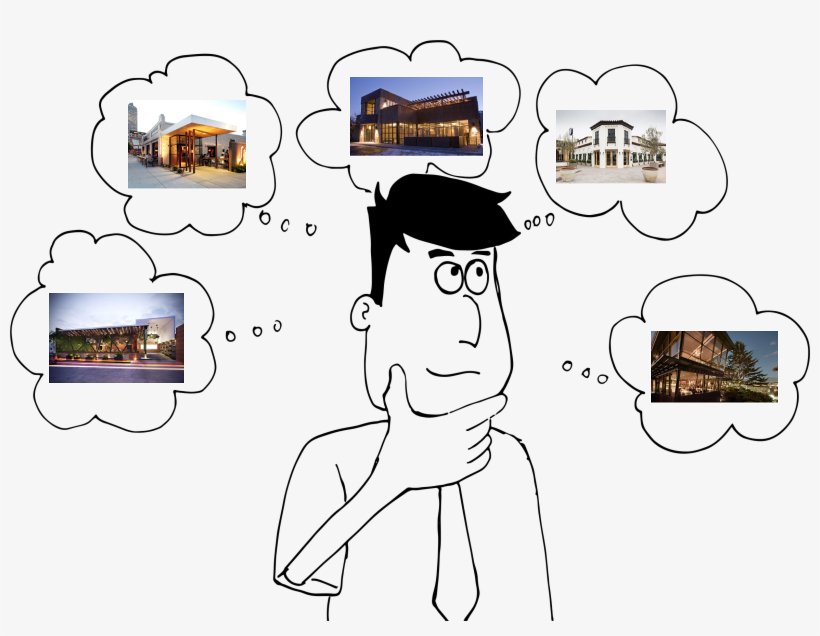This post originally appeared on tBL member SCGWest’s blog and is republished with permission. Find out how to syndicate your content with theBrokerList.
Build to suit development can be a great choice for many businesses. If you’re thinking of building a new building for your business, build to suit allows you to get the fully customized space you need, without a lot of capital out of your pocket.
Many business owners need or want a space that’s designed and built just for them and the way they operate. If that sounds like what you’re looking for, keep reading to learn about whether build to suit development might be a good solution for you.
What exactly is “build to suit” development?
Basically, “build to suit” is just what it sounds like – a building that’s built specifically to suit you and your needs. So how does it work?
As a commercial tenant, you sign an agreement with a commercial real estate developer who will buy the land, design the building (customized for you), and build it – and finance everything too. The developer will own the building and the land, and you’ll lease the building from them.
There is another possible build to suit arrangement, but it’s less common. Some business owners may decide to use a more “DIY” approach by securing financing, buying the land themselves, and entering into contracts for the design and construction of the new building. Then, when the building is complete, the business owner sells it to a commercial real estate developer and leases it back from them. This is usually called a “sale-leaseback.”
In this article, we’ll assume the first arrangement (a developer-owned build to suit).
What else should I know about build to suit development?
You’ll have to be really involved in the design
Since the building is being built specifically to suit your needs, the design team needs to understand those needs intimately. And there’s no better person to communicate them than you, the business owner!

Expect to have a lot of conversations, ask a lot of questions, and answer a lot of questions from the designers. They’ll be trying to get inside your head, so to speak – it’ll be important for them to understand how your business operates, and how your space can make your operations as seamless and efficient as possible.
And when your space allows your business to run as a well-oiled machine, that’s where the benefits of build to suit can really be seen. A build to suit may cost more money than leasing an existing building, in overall dollars, but the efficiency that you can gain from having a space custom designed for the way you work may very well make it worth it.
Expect a longer lease term
In order for the project to make financial sense for the developer, they’re going to want a long-term tenant. It reduces their risk and provides them a secure income. So you should expect that the developer will want you to sign a longer lease agreement, usually at least ten years.
It’s also worth noting that most build to suit leases are what’s called a “triple net lease.” That means the tenant is responsible for paying for maintenance & repairs, taxes, and insurance.
How is the rent calculated?
Like any other business, commercial real estate developers are looking for a return on their investment. So the developer will figure out their desired percentage of ROI (often called a cap rate) and apply that to the total cost of the project. Keep in mind, the total cost of the project isn’t just the bricks and mortar. There are other costs too, like legal fees, costs associated with getting the land entitled, taxes, and architectural/engineering fees.
If you’re considering a build to suit, make sure you understand the costs associated with the project and how they can affect what your rent will end up being. A good commercial real estate developer can walk through this with you so that you’re well informed.

What are the benefits of build to suit development?
There are many potential benefits in build to suit development.
Most business owners find that the biggest advantage is that build to suit development frees up capital for other things. When you don’t have to finance a construction project and come up with a lot of money upfront, you can invest your money in other ways that may be more advantageous for your business.
Plus, when you sign a lease for a build to suit project, you’ll be locking in the rental rate for a long period of time – usually at least ten years. This predictability can make your financial forecasting easier.
Furthermore, your rent may be fully tax-deductible (of course, you should talk to your tax advisor about this), and this could be another big benefit for your business.
Another advantage is that your building will be designed for the way your business operates, not the other way around. If your business has specialized space needs, then having a space that fits those needs is really important for you to be able to operate efficiently and/or create the type of customer experience you want to provide. You’ll have a brand new space that can fully reflect your brand – and you’ll know that the equipment and building systems are new and in great shape, which is important since you’ll be responsible for the cost of repairs.
Yet another benefit is that you won’t have to manage the land acquisition, entitlement, design, and construction yourself. The process of buying land and constructing a new building can be a huge undertaking! Unless you’re a real estate and construction expert in your spare time, it’s best to have professionals handle all of it for you.

Are there any disadvantages to build to suit development?
Build to suit is a great solution for many businesses, but not all. Here are some of the potential disadvantages to build to suit:
The timeline for a build to suit project can be quite long when you consider that the developer will need to 1) find and acquire the land, 2) go through the entitlement process, 3) hire a design and construction team, unless they have this in-house, 4) design the building and 5) construct it. If you’re looking for a place to locate your business in the very near future, then build to suit isn’t for you.
Another issue is that you’ll be agreeing to keep your business in the same physical location for many years. If the demographics, traffic patterns, or other factors in the area change and are no longer favorable for your business, you won’t be able to just pack up and find a better location.
And lastly, your business may not need a brand new, custom-designed building. Depending on your type of business, you might very well be able to find an existing space that can be remodeled and work perfectly fine for you. It all depends on your priorities and your business model. Consulting with a commercial real estate developer is the best way to start to figure out the right choice for your business.
Is build to suit right for my business?
There are a few questions you should ask yourself when considering whether build to suit is a good choice for your business:
How soon do I want to be in my new space?
If your current lease is up in 3 months and you want to move, then build to suit isn’t going to work for you. But, if you’re not in a big hurry to be in your new space, then build to suit may be ideal.
How much money do I want to spend upfront on a new building?
A new building comes with lots of costs: land acquisition, hiring design professionals, and construction. Do you have sufficient capital and credit to fund and finance a project? And do you want to have capital tied up in a building, or would you rather use it on growing your business in other ways?
Am I sure that I want to be in the same location long term?
If you’re considering build to suit, make sure that you can answer “yes” to this question, because you’ll be entering into a long-term lease.
Do I have the time and expertise to handle all of this on my own?
If not, build to suit may be your best bet. You’ll have a professional development team handling the project, and this is the best way to get the building you’re expecting.
ᔓ
Build to suit makes a lot of sense for many business owners. They get a new, tailor-made building in which to run their business, without having to come up with a lot of money upfront. There are even potential tax benefits.
If you think building a new building for your business is a possibility in the future, definitely consider build to suit – and talk with a trusted commercial real estate developer, who can give you guidance and advice.



